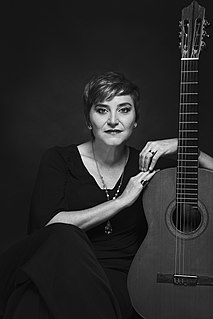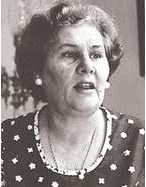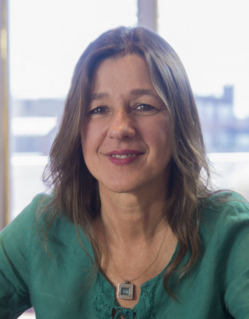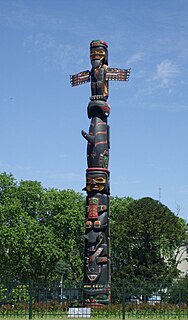Related Research Articles

Asunción is the capital and the largest city of Paraguay in South America. The city stands on the left bank of the Paraguay River, almost at the confluence of this river with the Pilcomayo River. The Paraguay River and the Bay of Asunción in the northwest separate the city from the Occidental Region of Paraguay and from Argentina in the south part of the city. The rest of the city is surrounded by the Central Department.

Club Libertad is a football club based in Asunción, Paraguay. It was founded in 1905 and plays in the Paraguayan Primera División.

Josefina Plá was a Spanish-born poet, playwright, journalist, art critic, sculptor, ceramicist, and historian. She has been described as "the most influential woman in Paraguayan cultural matters in the twentieth century."

Horacio Manuel Cartes Jara OSC is a Paraguayan businessman and politician. He was the president of Paraguay from 2013 to 2018. He is a member of the Colorado Party.

Berta Rojas is a Paraguayan classical guitarist. In 2012 she was nominated for Best Instrumental Album in the Latin Grammys for her album "Día y Medio " which she recorded with Paquito D’Rivera. For her album "Salsa Roja ", She was nominated at the 2014 Latin Grammy Awards, in the category of Best Classical Album. She got her 3rd nomination on 16th Annual Latin Grammy Awards, for her album "History of Tango", which she recorded with the iconic Camerata Bariloche, for Best Tango Album.
Mabel Arcondo (1940–1976) was a Paraguayan artist whose work is classified in the art history of Paraguay as being at the intersection between primitivism and surrealism. Her work was characterized by intense color and dream themes.

The Ministry of Culture of Argentina is a ministry of the national executive power that oversees the government's public policy on the culture of Argentina.

Carolina Stanley is an Argentine lawyer and politician. From 2011 to 2015, she worked as the minister of social development of the City of Buenos Aires until then-president Mauricio Macri appointed her as Minister of Social Development of the Argentine Nation, a post that she held until Macri left the Casa Rosada in 2019.

On 31 March 2017, a series of protests began in Paraguay, during which demonstrators set fire to the Congress building. The demonstrations occurred in response to a constitutional amendment that would permit President Horacio Cartes to run for re-election, a move described by the opposition as "a coup". One protester was killed in Paraguay's capital, Asunción, after being hit by a shotgun blast by police. Several protesters, politicians and journalists, as well as police, were reported injured, including one lower-house deputy who had to undergo surgery after being injured by rubber bullets. On 17 April, President Cartes announced that he was resigning from any possible candidacy for a second presidential term. On 26 April, the Chamber of Deputies of Paraguay rejected the proposed constitutional amendment for presidential re-election.

Carmen Casco de Lara Castro was a Paraguayan teacher, women's and human rights advocate and a politician. She established one of the first independent human rights organizations in Latin America and fought for both women's equality and an end to state-sponsored terrorism under the dictatorship of Alfredo Stroessner. She was influential in passing legislation for pay equity and maternity rights, as well as securing the repeal of laws curtailing basic human rights.

Mario Abdo Benítez, nicknamed "Marito", is a Paraguayan politician who is the current President of Paraguay. He was previously a senator and President of the Senate.
Alicia Beatriz Pucheta de Correa is a Paraguayan lawyer and politician who served as Vice President of Paraguay for three months in 2018. Pucheta is the first woman to occupy the Vice Presidency of Paraguay.
Luis Roberto Gneiting Dichtiar was a Paraguayan politician.
Leonor Cecotto was a 20th-century Latin American painter and engraver. Born in Argentina, she resided in Paraguay for the majority of her life, eventually becoming a prominent artist in the latter country. She was known for both her paintings and her xylographs.

The Marzo paraguayo was a political crisis that occurred in Paraguay because of the assassination of the then-Vice President Luis María Argaña on 23 March 1999. The opposition blamed the then-President, Raúl Cubas Grau, and also the strongman of Paraguayan politics of that time, Lino Oviedo, for the assassination. Argaña's assassination provoked a series of demonstrations by opponents and supporters to Oviedo and the Cubas government, which culminated in clashes in which seven demonstrators opposed to the government died, which resulted in the resignation of Cubas from the presidency.

Patricia Jacquelyn Balbuena Palacios is a Peruvian lawyer and public servant. She was the Minister of Culture of Peru from April to November 2018 during the first eight months of Martín Vizcarra's government.

Sabina Andrea Frederic is an Argentine social anthropologist, university professor and politician, currently serving as Minister of Security since 10 December 2019.

Plaza Canadá is a public square in the Retiro neighbourhood of Buenos Aires, Argentina located within the streets of Maipú, Antártida Argentina, San Martin, and Dr. José María Ramos Mejía.

María Carlota "Lotte" Schultz was a Paraguayan artist. Schulz used several different media in her work, including ceramics, drawing, painting and printmaking. She is known for her innovative prints using cowhide. Schultz was also trained in art restoration. Schultz shared her skills with others as a teacher and worked as an artist throughout her life.
References
- 1 2 "Mabel Causarano recibió premio en Italia" [Mabel Causarano Receives Award in Italy]. La Nación (in Spanish). 9 August 2016. Retrieved 9 October 2019.
- ↑ "Mabel Causarano". Portal Guarani (in Spanish). August 2013. Retrieved 9 October 2019.
- 1 2 "UC condecoró labor docente de Mabel Causarano" [UC Awards Teaching Work of Mabel Causarano]. La Nación (in Spanish). 5 May 2016. Retrieved 9 October 2019.
- 1 2 "Arquitecta Mabel Causarano, reconocida como 'Hija Dilecta de la Ciudad de Asunción'" [Architect Mabel Causarano, Recognized as 'Favored Daughter of the City of Asunción'] (in Spanish). Ministry of Culture of Paraguay. 18 November 2015. Retrieved 9 October 2019.
- ↑ "Academia de la Historia presenta anuario y revista" [Academy of History Presents Yearbook and Magazine]. ABC Color (in Spanish). 3 December 2018. Retrieved 9 October 2019.
- 1 2 "Mabel Causarano es elegida como ministra de Cultura" [Mabel Causarano is Chosen as Minister of Culture]. Última Hora (in Spanish). 15 August 2013. Retrieved 9 October 2019.
- ↑ "Cartes destituye a ministra de Cultura Mabel Causarano" [Cartes Dismisses Culture Minister Mabel Causarano]. Última Hora (in Spanish). 7 September 2016. Retrieved 9 October 2019.
- ↑ "Ministerio de Cultura: Destituyen a Causarano" [Ministry of Culture: Causarano Dismissed]. Hoy (in Spanish). 8 September 2016. Retrieved 9 October 2019.
- ↑ "Mabel Causarano recibe homenaje de la UCA" [Mabel Causarano Receives Tribute From the UCA]. La Nación (in Spanish). 2 May 2016. Retrieved 9 October 2019.